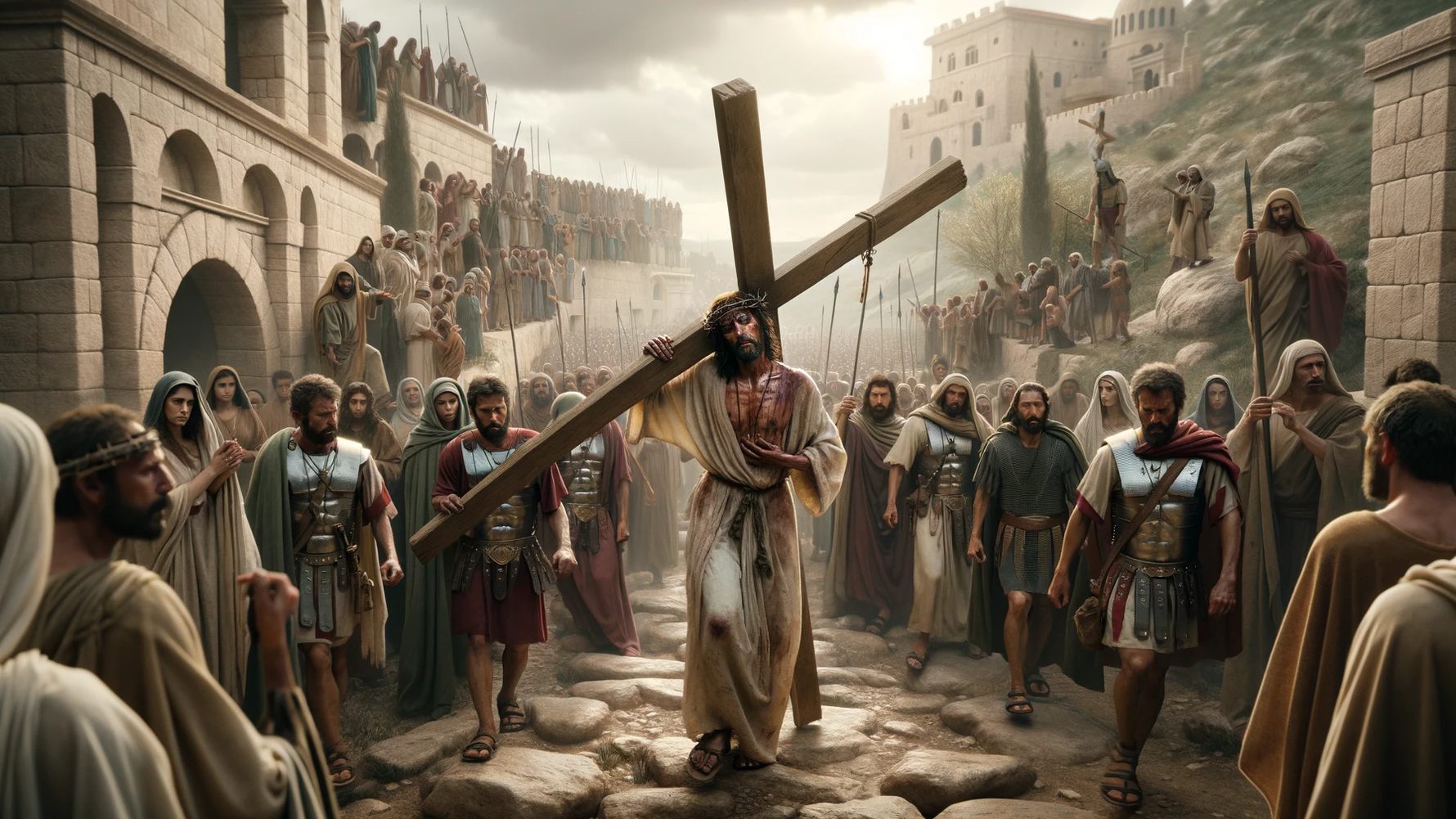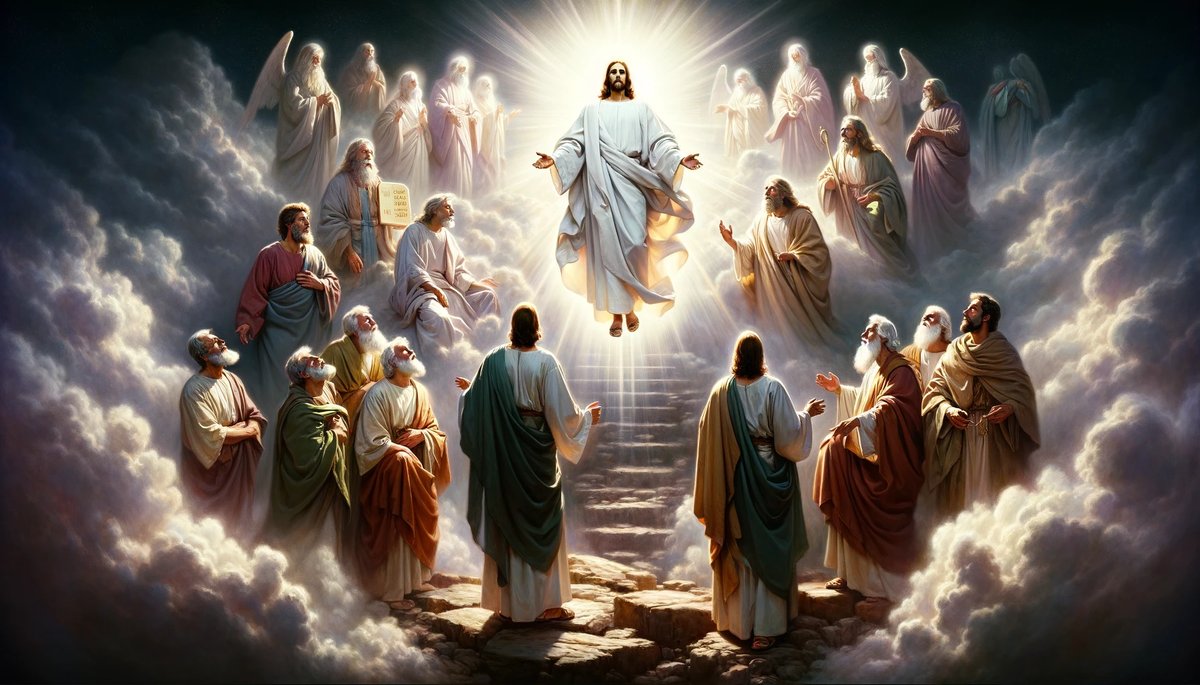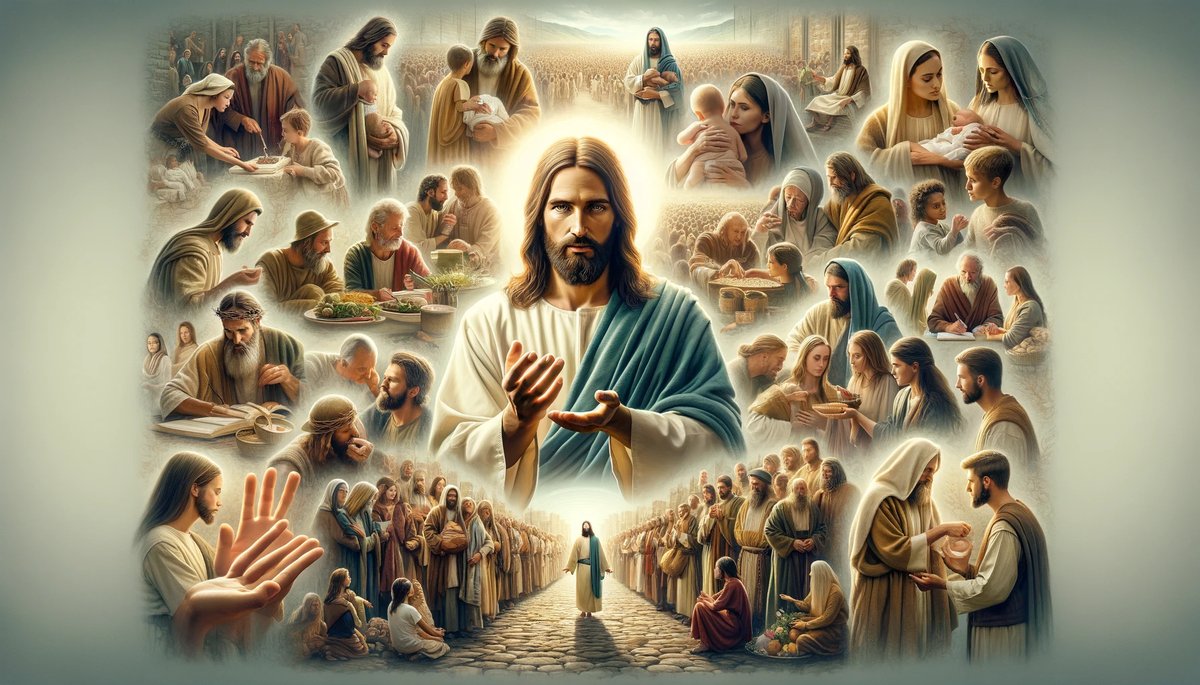Home>Christian Videos>Bible Stories>What Similarities Are There Between David And Jesus Christ?


Bible Stories
What Similarities Are There Between David And Jesus Christ?
Published: March 3, 2024
Jason DeRose, Managing Editor at Christian.net, uses his expertise in religion and journalism to deepen understanding of faith's societal impacts. His editorial leadership, coupled with a strong academic background, enriches the platform’s diverse content, earning him recognition in both journalism and religious circles.
Discover the similarities between David and Jesus Christ in the Bible stories. Explore their shared traits and significance in religious teachings. Unlock the parallels between these two iconic figures.
(Many of the links in this article redirect to a specific reviewed product. Your purchase of these products through affiliate links helps to generate commission for Christian.net, at no extra cost. Learn more)
Table of Contents
Introduction
The similarities between David and Jesus Christ are striking and profound. Both figures are central to the religious traditions of Christianity and Judaism, and their lives and actions have had a lasting impact on the faith of millions of people around the world. Despite living in different times and facing different challenges, David and Jesus share many commonalities that have shaped their legacies and continue to inspire believers today. In this article, we will explore the parallels between these two influential figures and the significance of their similarities in the context of religious teachings and beliefs.
Early Life and Anointing
-
David: David's early life is characterized by his humble beginnings as a shepherd. He was the youngest son of Jesse and was initially overlooked by his own father when the prophet Samuel came to anoint the future king of Israel. However, Samuel was guided by God to anoint David, despite his youth and inexperience, as the chosen one to succeed King Saul.
-
Jesus: Similarly, Jesus' early life is marked by humble origins. Born in a manger in Bethlehem, he grew up in the town of Nazareth as the son of a carpenter. His birth was foretold by angels and heralded by the appearance of a star, signifying his divine purpose. Jesus' anointing, however, occurred at his baptism in the Jordan River, where the Holy Spirit descended upon him in the form of a dove, and God declared, "This is my beloved Son, in whom I am well pleased."
-
Both David and Jesus were anointed by a prophet or a divine figure, signifying their special status and divine calling. This anointing set them apart for their future roles as leaders and saviors of their people, establishing a parallel between their early lives and the divine purpose for which they were chosen.
-
The anointing of David and Jesus underscores the significance of divine intervention in their lives and the fulfillment of prophecies regarding their future roles. It also highlights the theme of unexpected or unlikely individuals being chosen by God for extraordinary purposes, emphasizing the divine sovereignty and wisdom in selecting these figures to fulfill their respective destinies.
Ministry and Miracles
-
David: David's ministry as the king of Israel was marked by his unwavering devotion to God and his efforts to unite the nation under a single, righteous rule. He established Jerusalem as the capital and brought the Ark of the Covenant into the city, symbolizing the presence of God among his people. David's reign was characterized by military victories, expansion of the kingdom, and the establishment of a just and prosperous society. His leadership was often accompanied by divine guidance and intervention, as seen in his triumph over Goliath and his deliverance from various adversaries.
-
Jesus: Jesus' ministry, on the other hand, was centered on preaching the kingdom of God, teaching profound spiritual truths, and demonstrating God's love and power through miracles. He healed the sick, restored sight to the blind, raised the dead, and performed numerous other miraculous acts that revealed his divine authority and compassion. Jesus' teachings emphasized love, forgiveness, and the coming of God's reign, challenging the religious norms of his time and calling people to a deeper, more authentic relationship with God.
-
Both David and Jesus exercised authority and leadership in ways that reflected their divine calling and the fulfillment of God's purposes. Their ministries were characterized by a deep connection to God, a commitment to righteousness, and a profound impact on the lives of those around them. The miracles attributed to both figures served as tangible demonstrations of God's power and presence, affirming their roles as chosen instruments of divine grace and redemption.
-
The ministries of David and Jesus exemplify the transformative power of faith, the importance of spiritual leadership, and the enduring impact of individuals who are dedicated to fulfilling God's will. Their respective contributions to the spiritual and historical narratives of Christianity and Judaism continue to inspire believers and shape the understanding of God's redemptive work in the world.
Betrayal and Crucifixion
-
David: David faced betrayal from within his own family and court. His son Absalom rebelled against him, seeking to usurp the throne and undermine David's authority. This act of betrayal led to a period of conflict and turmoil within the kingdom, as David was forced to confront the treachery of his own flesh and blood. Despite the pain and heartache caused by this betrayal, David displayed resilience and faith in God, ultimately prevailing over the rebellion and reclaiming his position as the rightful king of Israel.
-
Jesus: Jesus, too, experienced betrayal in a profound and devastating manner. Judas Iscariot, one of his own disciples, betrayed him to the religious authorities for thirty pieces of silver. This act of betrayal set in motion the events that led to Jesus' arrest, trial, and crucifixion. Jesus endured the agony of betrayal not only from Judas but also from the denial of Peter and the abandonment of his disciples during his darkest hour. His crucifixion, a brutal and unjust execution, stands as a central event in Christian theology, symbolizing the sacrificial atonement for the sins of humanity.
-
Both David and Jesus faced betrayal from those closest to them, testing their faith and resolve in the face of adversity. Their experiences of betrayal serve as poignant reminders of the complexities of human relationships and the capacity for deception and disloyalty, even among those who profess allegiance and love. Despite the anguish caused by betrayal, both figures demonstrated unwavering trust in God and a commitment to fulfilling their respective destinies, ultimately triumphing over the forces of betrayal and injustice.
-
The crucifixion of Jesus and the challenges faced by David following betrayal underscore the themes of suffering, redemption, and the triumph of faith over adversity. These experiences form integral parts of the narratives of David and Jesus, shaping their legacies and serving as powerful symbols of the human condition and the divine response to the brokenness of the world.
Legacy and Impact
-
David: David's legacy as the king of Israel and the "man after God's own heart" endures as a testament to his profound impact on the religious and cultural identity of the Jewish people. His reign established a dynasty that shaped the history of Israel and laid the foundation for the construction of the Temple in Jerusalem by his son, Solomon. David's Psalms, expressions of deep faith and devotion, continue to resonate with believers and serve as a source of inspiration and comfort. His leadership and military prowess have been celebrated in art, literature, and music, symbolizing the triumph of righteousness and the enduring presence of God's grace in the face of adversity.
-
Jesus: The legacy of Jesus Christ transcends time and culture, profoundly influencing the course of human history and the spiritual beliefs of billions of people. His teachings on love, forgiveness, and the kingdom of God have shaped the ethical and moral frameworks of societies and inspired countless acts of compassion and service. The crucifixion and resurrection of Jesus form the cornerstone of Christian faith, representing the ultimate sacrifice for the redemption of humanity and the promise of eternal life. The spread of Christianity and the enduring impact of Jesus' life and message have transformed civilizations, fostered social justice movements, and provided hope and solace to individuals facing hardship and persecution.
-
The legacies of David and Jesus reflect the enduring power of faith, the resilience of the human spirit, and the transformative influence of individuals who are called to fulfill divine purposes. Their impact extends beyond the boundaries of time and space, resonating with believers and seekers of truth across generations and cultures. The enduring significance of their lives and teachings underscores the universal themes of redemption, restoration, and the triumph of righteousness over adversity, offering a source of hope and inspiration to those who seek meaning and purpose in their own journeys of faith.















